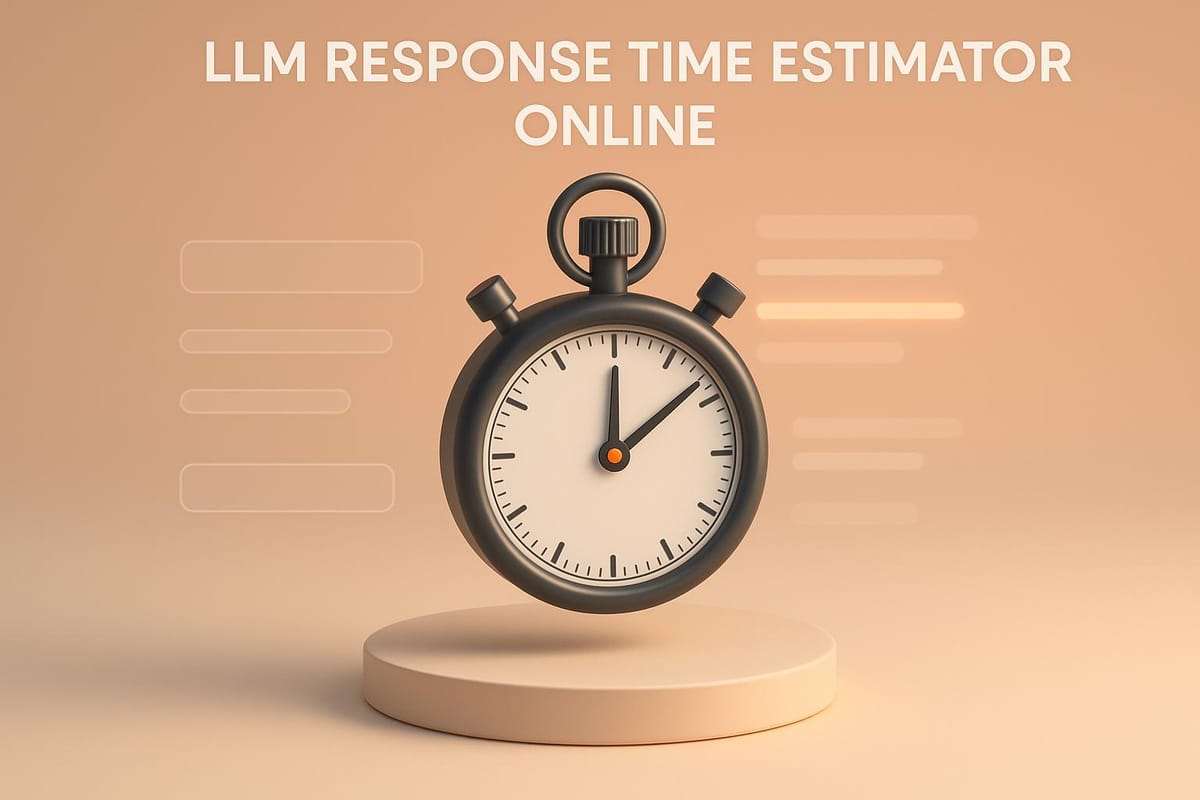LLM Response Time Estimator Online
Estimate how long a language model takes to respond with our free LLM Response Time Estimator. Input prompt length and model type for instant results!

Understanding AI Response Times with Our Estimator Tool
When working with large language models, one question often pops up: how long will I have to wait for a reply? Whether you're a developer testing prompts or a business integrating AI into customer service, knowing the potential wait time can make a huge difference in planning. That’s where a tool to gauge language model processing speed comes in handy.
Why Response Times Vary
Several factors play into how quickly an AI generates output. The length of your input is a big one—longer prompts naturally take more time to process. Then there’s the type of model you’re using; a basic one might zip through simple queries, while a premium setup handling intricate tasks could need a few extra seconds. Task difficulty also shifts the timeline. A straightforward request is quicker than something nuanced or creative.
Plan Smarter with Estimates
Having a rough idea of these delays lets you manage projects better. You can tweak prompt lengths or adjust expectations based on the model and task at hand. Our free calculator simplifies this, offering quick insights so you’re not left wondering. Try it out and see how small changes impact AI turnaround times!
FAQs
How does this tool estimate response times for language models?
Our estimator uses a straightforward formula to predict wait times. We start with a base of 2 seconds for a basic model handling a simple task. Then, we add 1 second for every 50 words in your prompt. If you pick a moderate task or advanced model, we bump the time up by 50%. For complex tasks or premium models, it’s a 100% increase. This gives you a rough but helpful idea of what to expect when waiting for an AI reply.
Can I trust these estimated times for all AI models?
While our tool provides a solid ballpark figure, actual response times can vary. Different platforms, server loads, and specific model quirks might speed things up or slow them down. Think of this as a general guide rather than a precise stopwatch. It’s best for planning or comparing how different inputs might affect wait times across basic, advanced, or premium setups.
Why does task complexity affect AI response time?
Task complexity matters because it reflects how much processing power the model needs. A simple task, like answering a basic question, takes less effort and time. But a complex task—think creative writing or detailed analysis—requires deeper reasoning, so the model works harder and takes longer. We factor this into our estimates to mimic real-world behavior as closely as possible.

